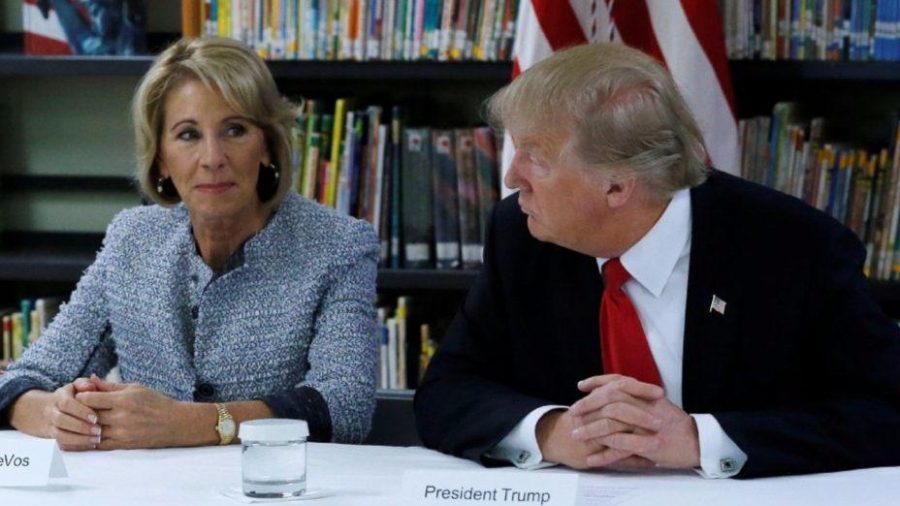Betsy Devos Controversies
Photo courtesy of Jonathan Ernst
Betsy Devos assumes the position of Secretary of Education on February 7, 2017.
March 10, 2017
Betsy Devos, the 11th and current United States Secretary of Education, has become a very controversial public figure. Trump announced he would nominate her for the position of Secretary of Education in November of last year, and consequently, Devos assumed office on February 7th. Within the first month of office, she has already encountered major opposition to her ideas.
At Devos’s confirmation hearing, Bernie Sanders challenged her with this question: “Do you think that if you were not a multibillionaire, if your family had not made hundreds of millions of dollars in contributions, that you would be sitting here today?” He suggested that Devos got her job because of her wealth and not due to skill or experience.
Recently, she had made a controversial comment about Historically Black Colleges and Universities, saying that they are “real pioneers when it comes to school choice” and that “they are living proof that when more options are provided to students, they are afforded greater access and greater quality. Their success has shown that more options help students flourish.” She received backlash for this statement because black people didn’t have a “school choice” back then; HBCU was the only path for them if they wanted education.
There is also a controversy over Devos’s take of the separation of church and state. In an early 2000s interview, she stated, “our desire is to confront the culture in ways that will continue to advance God’s kingdom.” Also, many of her philanthropic givings are towards Christian schools and evangelical missions (Mother Jones). Many people speculate that some of her policies will deviate to her own personal beliefs rather than the interests of the American people.
Devos is also widely known for her support for “public charter schools run by for-profit companies, and the use of taxpayer funds to pay private school tuition through vouchers” (The Hechinger Report). Arlyn Lanting, a businessman, investor, and local philanthropist, has also claimed that she “does believe that teachers in charter and private schools are much more likely to lead the way toward better education—the kind that will actually prepare students for our current times and move us away from standardization and testing” (Mother Jones).
Mr. Buchan is a history teacher at YLHS. Being that, he is aware of the struggles and steps taken to make public education accessible to students in Europe and the United States. “I think public education is great, and that defunding it to support private institutions is against the fabric of the United States,” he says. “People can choose where their kids go and how to educate their kids, but not with my tax dollars.”
For now, the Every Student Succeeds Act, a federal education law passed last year, prohibits the secretary of education from imposing national standards (CNN). Devos still has a lot of work to do to achieve her goals for vouchers and charter schools, and she will have a rough time in office with the overwhelming opposition from Americans.





































